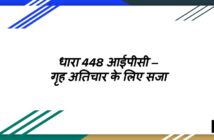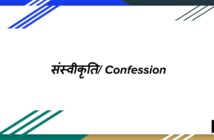A Constitution is a set of written and unwritten rules that lays down the duties, functions, and powers of the government institutions (legislative, execution, and judiciary), to regulate the relationship among the institutions and establish a relationship between the State and individual. Indian constitution was written by B.N.Rao and presented before the Constituent Assembly for their approval, which was then revised by Dr. Babasaheb Ambedkar, the Chairman of the Drafting Committee and enacted on the 26th November 1949. It came into force on 26th January 1950, this day is also celebrated as the “Republic Day.”
Salient features of the Indian Constitution
Following are the prominent features of the Constitution:
1. Lengthiest written constitution
Indian constitution is the lengthiest written constitution globally, as it has been derived from other countries constitutions such as Government of India 1935, USA, UK, USSR, Canada, Germany, and Ireland. It has 25 parts, 448 articles, and 12 schedules.
2. Single Constitution
India follows a single book of the constitution.
3. Preamble
The constitution’s preamble contains the objectives, ideals, and basic principles of the constitution. The preamble states that India is a sovereign, democratic republic, socialist, secular, and welfare state that secures liberty, equality, and justice for the people, promotes the individual’s dignity and fraternity and protects the unity and integrity of the nation.
4. Rigidity and flexibility
The constitution is a blend of rigidity and flexibility, which means it cannot be amended but is subject to certain conditions only with the approval of the two-thirds majority of the members of the Parliament. However, any amendment to the constitution can also be made under Article 368. This proves that the constitution is rigid (i.e., it cannot be changed) but is also flexible (i.e., can be changed but with a two-thirds majority) where the public’s interest is in question.
5. Citizenship
Part II of the Indian constitution states about citizenship. Any person who has a domicile in India and born in India, or whose either of the parents is born in India or who has been residing in Indian territory for not less than 5 years, then such person is considered a citizen of India. Moreover, suppose any person has acquired citizenship of any foreign state. In that case, such a person shall not be regarded as a citizen of India. A person can reside in any part of the country and is entitled to only single citizenship; in other words, there is no dual citizenship.
6. Parliamentary form of Government
The Indian Constitution has the parliamentary form of Government, i.e., the President is the nominal head of the State. The Prime Minister and the Council of Ministers administer the Government. The Council of Ministers is collectively responsible to the Lok Sabha.
7. Independent Judiciary
The judiciary is independent of legislative and executive power. Therefore, the judiciary has to implement proper law and order and enforcement of the provisions of the constitution. The constitution has laid down provisions to ensure that the judiciary can make laws without being biased.
8. Finance Commission
Article 280 provides for the finance commission, its appointment, power, and duties. All the money collected by the State or Central Government in the form of taxes or grant-in-aid is distributed between the states on the recommendation of the finance commission of India. The finance commission also makes recommendations on the distribution of the Consolidated Fund of a State among the municipalities and panchayats of the State.
9. Emergency provisions
The Indian Constitution also has provisions for challenges or situations that threaten the sovereignty, security, and unity of the country. All the fundamental rights are set aside during the emergency. There are three types of emergencies, namely;
- National Emergency – Article 352
- State Emergency – Article 356 (President’s Rule)
- Financial Emergency – Article 360
10. Affirmative action
The constitution provides that the State shall take affirmative or positive action to improve the conditions of the socially and economically weaker section of the society by providing reservations in the legislatures and government jobs under Article 15 and 16 of the Constitution.
11. Independent Agencies
The Indian Constitution has established independent agencies and assigned their powers to ensure effective implementation of the constitutional provisions. These independent agencies are;
a) Election Commission – Article 324 to conduct election
b) Comptroller and Auditor General – Article 148 to audit government accounts
c) Union and State Public Service Commissions – Article 315 to conduct civil service exams
d) Judiciary
12. Federal structure of Government – federation with a strong centralizing tendency
Federal State means different states with different laws. Indian constitution follows a federal but unitary system, i.e., Quasi – federal structure. Where all the powers are distributed equally among the states and the central Government of the country has the strongest power. Rajya Sabha has the power to make laws in the State list in the national interest by passing a resolution by a majority of two-third members of the Parliament. It has a strong common and centralized election commission for state government and the Parliament. Only the Parliament has the power to amend the constitution. The States can only amend if the matter affects the federal interest by a resolution passed by a special majority of members of the states. The central government exercises control over the State in case of Emergencies. Single judiciary to regulate both central and state laws.
13. Adult Suffrage
The constitution also provides that anyone above 18 years, irrespective of their race, caste, gender, or religion, has a right to vote under Article 326. However, any person who is not a citizen or is of unsound mind or a criminal is not qualified to vote in elections.
14. Secular State
The word ‘secular’ means not belonging to a particular religion. The constitution states that there is no religion of the country. Every citizen has the right to follow and propagate the religion of their choice. The State cannot discriminate against the citizens on the ground of religion.
15. Fundamental rights
Part III of the Constitution guarantees fundamental rights to the Indian citizen. The State shall not make any law that abridges or takes away these fundamental rights. The fundamental rights are covered under Article 12 – 35 of the Indian Constitution; some of them are;
· Right to equality,
· Prohibition of discrimination based on race, religion, caste, place of birth, or sex.
· Right to freedom of speech and expression, movement, practise any profession, trade, business or occupation.
· Right against exploitation,
· Protection of life and personal liberty,
· Protection against unlawful arrest and detention,
· Freedom of religion,
· Right to education
· Cultural and educational rights
· Right to Constitutional remedies
These fundamental rights are not absolute; they are subject to reasonable restrictions to ensure the maintenance of discipline and public order.
16. Directive Principles of State Policy
Part IV of the Indian Constitution deals with the Directive Principles of State Policies (Article 36-51). It is derived from Ireland’s constitution. It lays down the duties of the State to implement these principles while framing new legislation. It aims at achieving the social and economic development of the people.
Some of the directive principles that the State should follow are:
· Adequate means of livelihood
· Equal distribution of ownership and control of material resources
· Equal pay for equal work
· Free legal aid
· Raising the standard of living and nutrition level of the people
· Organization of village panchayats
· Secure uniform civil code for all the citizen
· Free and compulsory education for children
· Promotion of educational and economic interest of the Scheduled Caste, Scheduled Tribes and other weaker sections of the society,
· Protection of monuments, places, and objects of national importance,
· Promotion of international peace and security
· Improvement of environment and safeguarding of forests and wildlife.
17. Fundamental Duties
Every right comes with duties. Therefore, Part IVA of the Indian Constitution provides for the duties of every citizen of India. It is the duty of the citizens to –
· Abide by the provisions made by the constitution and respect the National flag and the National Anthem of the country.
· Protect the integrity, unity, and sovereignty of the country,
· Safeguard public property,
· Value and preserve the rich heritage of the country,
· Promote harmony and the spirit of common brotherhood among the citizen,
· Provide education to their children or ward.
18. Judicial Review
Judicial review is one of the salient features of the constitution. The judiciary functions as a guardian of the constitution. It is authorized to keep a check on the legislative and executive institutions of the Government. Furthermore, the court has the power to declare any act as unconstitutional if it is violative of the basic structure of the constitution.
Conclusion
The Indian Constitution is the only lengthy written constitution in the world. It has been drafted keeping in mind the diversity, sovereignty, democracy, secularity, economy of the country. The constitution is derived from various constitutions. Therefore, the Indian Constitution is not only rigid but also flexible.

